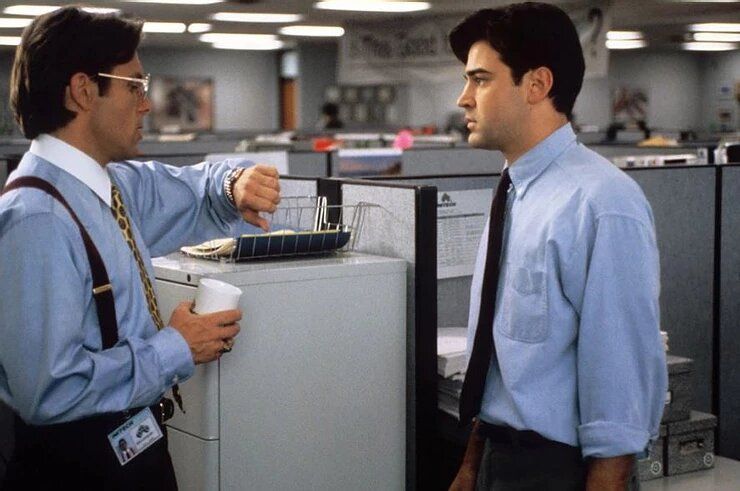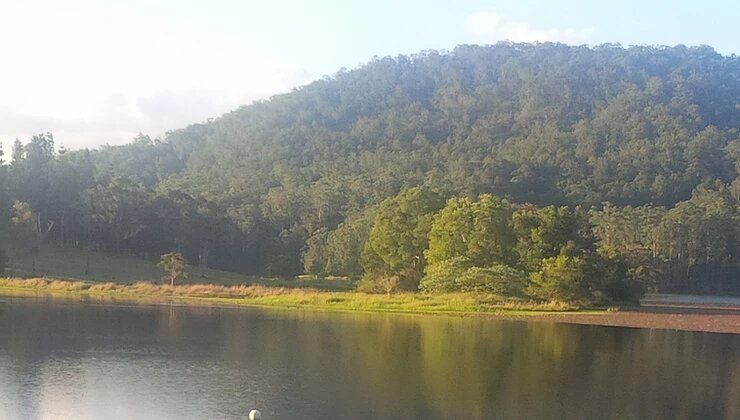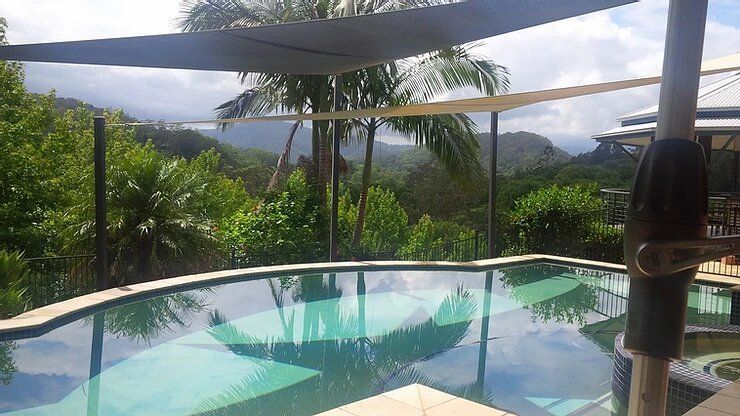Blog
Blog

09 Oct, 2020
As we all start to get back to work, the uncertainty of a rising unemployment rate combined with the need to "play catch-up" from companies whose profits have been seriously impacted by recent events can create some unique stressors in the workplace. Under stress, we do not behave at our best. We become irritable and intolerant of others and we also become less conscious of how we are coming across to others. So too do our managers, who - yes, should by rights know better, but sadly are vulnerable to the same human flaws such as stress responses (did I say that? No I wouldn't say something like that..) and blind spots. We have all experienced an encounter of some sort, where our boss has left a lasting, negative experience which we can't seem to shake off. That comment during the meeting, the unfair treatment, the lack of real care or authenticity, or that condescending look. Let's face it. It hurts, hurts bad, and lasts a lot longer than we care to admit.

09 Oct, 2020
What if you knew in your heart that nothing out there intended to hurt or harm you? How would that feel? Anxiety, in the face of a real danger or threat, is a very good thing indeed. Our blood changes, our heart rate increases, our senses become heightened and our body transforms itself into a high performance machine, capable of running faster, fighting more ferociously, lifting heavier things, or even hiding quietly sometimes. We can use anxiety before a big performance like a presentation, interview, or sporting contest to "psych ourselves up" and deliver an outstanding larger than life performance. Anxiety can in fact be a very good thing and extremely helpful to our survival. However many of us (close to 15% of Australians) will experience an episode of an anxiety disorder this year. It's the most common diagnosable mental illness by a long way - more than double the prevalence of depression. And many more of us will experience something similar - not quite diagnosable, but still scary symptoms of a racing heart, shivery feelings, overwhelming fear, sweating, dizziness and generally feeling terrible. The difference with an anxiety disorder is that there is no threat or danger present - things just become scary and unmanageable. Often to the point where we run, hide, freeze, avoid, procrastinate, get in trouble at work, or become simply exhausted and unable to function.

09 Oct, 2020
Most of our lives are spent pursuing the path of least resistance. The method which offers up the most economy of effort. The lifestyle or workplace relationship that involves the least hassle, or conflict. We tend to do what is easiest. That is not to say we don't sometimes make life unnecessarily hard for ourselves. But that usually involves avoiding some truth, some uncomfortable and confronting experience where we might feel some shame or embarrassment. This avoidance, if not dealt with completely can seriously impact us and others around us. And worse - this can lead to something much more dangerous - denial. At this point we have lost insight into what is really happening, and instead we start to convince ourselves that everything is OK. We start to believe our own bullshit. At this point we might notice others starting to give up on us. It's not worth pointing out that we are heading down a path of misery, because we would never believe them or agree with them anyway. At work, people just start to tell us what we want to hear. And if we are in leadership roles, that has a serious impact on the wider company culture. It seems easier to avoid conflict. To escape embarrassment or awkwardness. But sometimes, the path of least resistance ends up being much harder in the longer term. Whether you are refusing to address a health problem, a financial problem, or a relationship problem, it will strike you that the avoidance is short lived as a strategy for comfort or reduced pain and suffering. What we resist persists, as Carl Jung famously said. Have you ever noticed that sometimes taking the less comfortable road can produce an outcome that requires much less effort in the longer term? So we get up early and make it to the gym. The yoga mat. The road, the bench, the punching bag, or the swimming pool. The rest of the day feels a lot more comfortable afterwards, because we have stimulated some chemistry within us that builds on our resilience. We've also invested a tiny bit in our self esteem, and we allow ourselves a moment of gratitude or pride in having accomplished something - just for us. The evidence of investment in those "stairs" is beyond doubt. Taking the stairs instead of the elevator. Beating those step challenges. Or simply going for a walk - maybe one that involves a few stairs or a steeper incline on the hill. The benefits to our mental and physical health are many. Where are the opportunities in other areas of your life where you might choose to "take the stairs"? Here's a few examples I heard about when asking others this question recently: - Apologising to your partner for being obnoxious last night - even though it was a two way street - Confronting your boss with some concerns about the direction the company might be taking that is out of sync with your values - Jumping on the scales - Speaking to your doctor about your drinking, or another health problem that is causing you some fear and shame - Ringing that client whose business you are worried about losing - Calling your Mum! It doesn't matter what it is, there is always something within each of us where we know we haven't "taken the stairs" and if we can look in the mirror, with love and a smile, maybe a wink to ourselves, and say "it's time", we will never look back. Life can, and should feel easier. There is way too much dysfunctional stress experienced within most of us to be considered healthy. However most of that stress comes from being conflicted - knowing we should say something or take some action, but worrying about the consequences - and avoiding doing the right thing. If we can remember that taking the stairs sometimes can not only be good for us, but feel good as well (maybe not during but certainly afterwards!) - then hopefully life will start to feel a lot easier. Have a great week and enjoy your moment on the stairs. Cheers - Greg

By Localsearch WebServices
•
09 Oct, 2020
So you’ve got a great idea. A real winner. It could make a fortune, not to mention a huge contribution to your community. All you have to do is – meh…. who am I kidding. Back to the couch, back to certainty, back to – mediocrity. Does this sound familiar? Someone once told me there is a total of $30 trillion floating around the global exchange of money across our economies every second. If we knew how to tap into it, it would be like picking fruit from a tree. Money is a kind of energy, and like all forms of energy, money doesn’t diminish, it simply changes its form. If you’ve noticed a reduction in your money lately, chances are it is has popped up somewhere else – and into the account of someone else. Despite a change in appearance or form, a fundamental natural law is that energy remains constant. I certainly notice my energy levels ebb and flow, depending on what I’m putting into my body (or not) and how much time I spend focusing on other people’s needs to take energy from me. Presumably there is a difference between making a positive contribution to someone else’s life, and letting them needlessly take energy from me. And that is my decision – not to regulate my own energy levels. I think of motivation as a kind of fuel which drives us. Most motoring enthusiasts will understand that if we drive around in our car with the fuel tank close to empty, with an orange light flickering at us, daring us to drive a little bit further, that the car will not perform at an optimal level. In fact anything under half a tank is not advisable. This scenario is comparable to us operating under stress, not paying attention to warning signs that things are not good. Somehow we have been too busy, distracted or inattentive to notice that orange light is on, and we need to stop and fill the tank. When our “tank” is empty, we will fall short of our expectations in completing certain tasks purely because we just don’t have the energy – and this makes us feel worse. Perhaps we also lose sight of our purpose, because we are too focused on how tired we are. This is a very realistic situation for many of us and can be described as being in a state of burnout. Burnout occurs after prolonged periods of “running on empty” – driving around with our orange light on. And just like the vehicle, even after filling up the car with fuel, there are a few hiccups and false starts before the engine starts to fire again. It’s hard to find a nourishing enough fuel to start us up if we have let things run out this far. When our tank is half full or better, we will make better decisions, be more resilient in the face of adversity or setbacks, and have discretionary effort which we can willingly provide to others, making a contribution to something bigger than ourselves. Less than half a tank and we start to lose our self-awareness, make silly comments, become upset more easily, lose our resilience and our ability to cope with sudden change or setbacks, and make poorer decisions. At the burnout stage we become cynical, disengaged, don’t make any decisions, resort to blame and envy, and we just stop. Inertia, apathy, a lack of care – all of this just takes over and overwhelms us. Perhaps a better approach would be to ensure we don’t drop below “half a tank”. During our working week, we will engage in activities that fill the tank, and also in activities which deplete the tank. What do you do that “fills the tank”? And then what do you notice yourself doing that depletes the tank? It would be unrealistic to expect to be always filling the tank. We need to expend energy as much as we take energy in, otherwise we would explode! However just as we put on something warm when we are cold, or eat when we are hungry, it is important for us to be filling the tank before it gets low or empty. And that is a discipline which could mean 20 minutes a day of pleasurable activity or self-care, or two to three times a week when we allow ourselves to rest, rejuvenate, move our bodies, spend time with friends, read a book, or other activities - whatever we need.

By Localsearch WebServices
•
09 Oct, 2020
One of the benefits of being stuck at home a little more these days is that we can actively take time to reflect. However there are a lot of forces - internal and external - which prevent us from allowing a bit of down time in our day. Mindfulness seems to be limited to a 20 minute app session if you are lucky, and then it is in to top gear of the "monkey mind" for most of the day, along with the usual distractions and anxieties. Many of us are wondering right now what we will do about employment and generating income again. It's a scary thing. However there is an old saying "we can't control what happens much of the time, but we have total control about how we respond to what happens". Perhaps before the restrictions and social distancing started, you were in a job you didn't really like. But because it paid the bills, you put it out of your mind and got on with it, not noticing that a little piece of your soul was being taken every day, and Mondays just felt like an impossible mountain of despair to climb. Perhaps you felt unwell or had unusual aches and pains leading into the work week. It's quite likely these restrictions will go on for a few more months which might mean our credit gets squeezed and money becomes painfully tight. However banks, landlords, agencies of all shapes and sizes are trying to offer some relief for this. We will get through this tough time, but wouldn't it be sad if after all this time we went back to work and nothing changed? We hadn't refreshed our perspective, hadn't taken time out to reflect on what was working and not working in our lives, and used some strengths to set new goals and challenges for when life returned to normal? If we can adopt an attitude that basically accepts: 1) We can't change what's happening 2) There are a few positives in all this 3) We have time to reflect on what's happening, who we really are, and what we like to do; Then we have a real opportunity to set ourselves up for success with some clear goals, an exciting vision and the motivation to achieve what we set out to do.
QUICK LINKS
TRADING HOURS
- Monday
- -
- Tuesday
- -
- Wednesday
- -
- Thursday
- -
- Friday
- -
- Saturday
- Closed
- Sunday
- Closed






